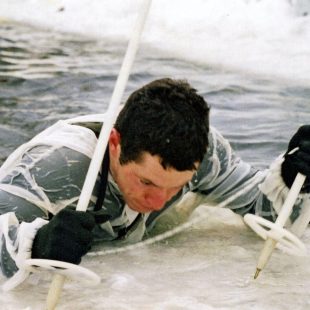Most science-minded 16-21 years olds want to train as a vet, a doctor, a dentist or a teacher, according to an Office for National Statistics report. These are the occupations most likely to inspire future professionals, because they encounter them in their day to day lives.

Young people are unlikely to dream of becoming a Patent Examiner if they have never met one. However, the skills needed for the more visible scientific roles have also equipped some of IPO's Patent Examiners for their jobs.
The IPO is recruiting eight Associate Patent Examiners in Organic Chemistry, Biotechnology and Biochemistry and six Associate Patent Examiners in Telecomms, Computing, Electrical/Electronic Engineering and Medical Physics. Both roles will be based at our Head Office in Newport, South Wales.
There are many routes to becoming a Patent Examiner, so we asked four of our IPO patent team that all-important question: “how did you get here?”
The pharma industry route - Dr Kerri Stenning, IPO Patent Examiner

Kerri, what inspired you to pursue a career as a patent examiner?
After finishing my PhD in Organic Chemistry, I initially followed the typical career path into an industry position, working in a laboratory making organic compounds. After three years I realised I wanted a change of direction. That’s when I started looking into a career as a Patent Examiner. It seemed to be an ideal mix of still using my technical expertise in a non-lab setting but also learning new legal skills.
What training did you receive?
I started as one of an intake of about fifty new starters and we all undertook a two-month training course together. This involved seminars, workshops and tutorials (but importantly no assessments!). It gave me the basic training in the legal aspects of examining patents, which I then built on by working on real patent applications.
What advice would you give to someone thinking of applying for a patent examiner role at the IPO?
Go for it! Perhaps the fact that it will be a change of direction for most people, particularly with the legal aspects, makes it seem a bit daunting. However, the training is comprehensive and everyone here is really welcoming and helpful.
The military route - James Richards, IPO Patent Examiner
James, tell us why the patent examiner role seemed a good fit for you.
After spending four years in the Royal Marines Commandos, I completed a degree in Electronic Communication Systems and joined the IPO as a Patent Examiner. At first glance there may not seem many directly transferrable skills between blowing things up from 5 kilometres away and reading and analysing detailed scientific papers. However, I have carried over many skills I learned in the Marines into patent examining.
So what are the skills and attributes needed to be a good patent examiner?
Attention to detail was something ingrained into my being, throughout my military training. That also transfers really well into patent examining. Very often it can come down to the tiniest details when deciding whether to grant a patent.
The STEM 'returners' route - Sarah O'Neill, IPO Intellectual Property Technical Assistant

Sarah, what attracted you to apply for the IPO's STEM Returner programme?
I was initially attracted by the ability to resume my STEM career following a career break. The returner role offered flexibility and an opportunity to learn while gently continuing with my professional skills.
What areas did you cover in your training?
During the first few weeks at the IPO I received training covering aspects of patent history, patent law and search techniques.
What have you enjoyed about your experience so far, and what were the challenges?
I have thoroughly enjoyed resuming my professional life. Although challenging at first, I soon relished being able to apply the training straight away and I quickly got into producing results. I have also appreciated updating my IT skills.
The electronics industry route - Jonathan Huws, Patent Examiner

Jonathan, what training did you receive when you started?
I received the standard in-house training that all Patent Examiners receive to begin with. I’ve since completed a postgraduate diploma in IP law (DIPLIP) and have been on training courses specific to the area of technology that I work in.
What advice would you give to anyone applying for a patent examiner role at the IPO?
Do it! The IPO is a great place to work - a fact that has been emphasised even more during the pandemic.
How does your job fit with your work-life balance?
Easy – I find that flexi-time and the office culture surrounding this make my work/home life balance very manageable. The office has been very supportive of things like childcare during the pandemic.
Find out more about becoming a Patent Examiner
I hope that the case studies above have provided some insight into the world of patent examining, and some of the STEM career routes that will take you there. All of our roles offer flexible working, a generous pension scheme and excellent development opportunities.
Should I get a patent?
For more information about patents, take a look at our short video below:

Recent Comments